Saint John plans managed encampment for homeless people
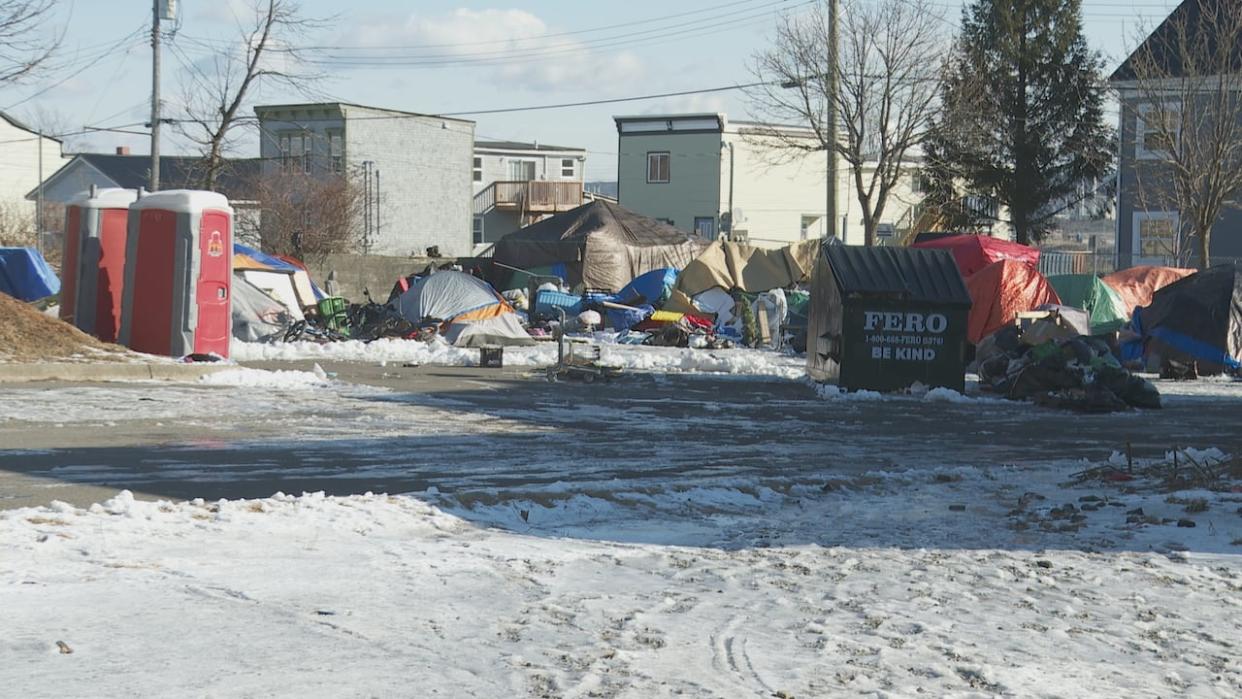
Saint John is moving ahead with a plan to create a managed encampment site for people in the city who are homeless.
The idea is to put 20 or 25 small shelters in one area, provide amenities like water, toilets and electricity and have round-the-clock supervision, said Saint John Mayor Donna Reardon on Thursday.
She said the site could also include kitchen and laundry facilities.
"I mean you can get showers today that come on a trailer, a whole row of showers. So there are lots of things available out there."
The goal is to also provide on-site "wrap-around services" to help with housing, addiction and mental health needs of the residents.
She said the city is currently looking at finding the right location.
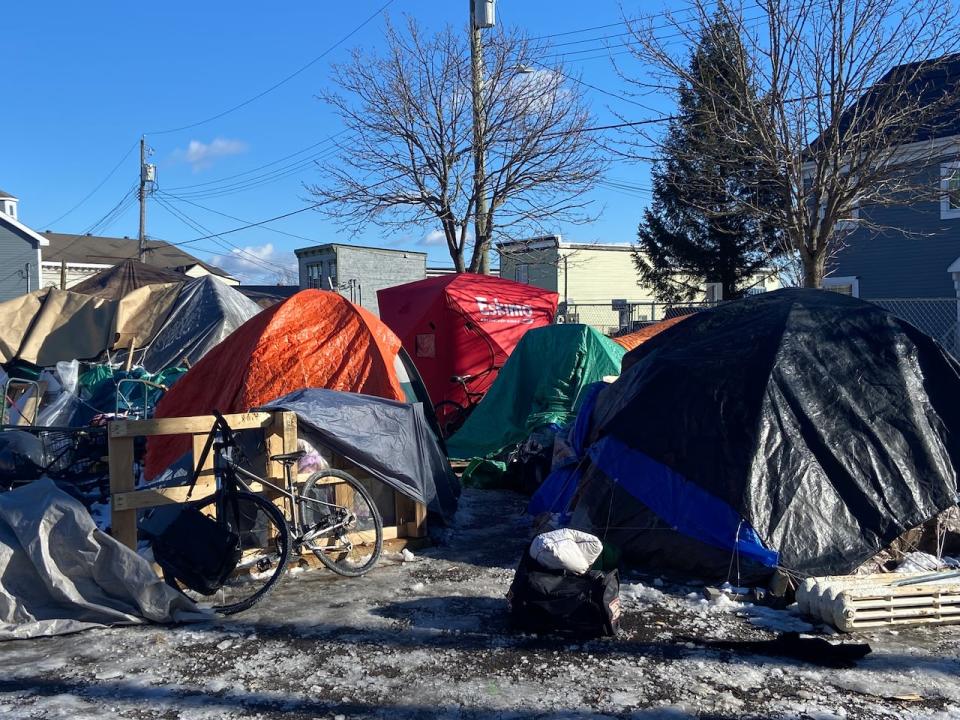
A tent encampment between Waterloo and Exmouth streets in Saint John on Jan. 18, 2024. (Rachel Cave/CBC)
"So we've asked the province, we've asked the feds for a list of properties that could be available for that."
The province has already contracted Saint John-based Fresh Start to provide the outreach work.
The group already manages its own site on Waterloo Street, in partnership with Kaleidoscope Social Impact, since early fall, said its executive director Melanie Vautour.
"So for us it's multiple times a day visiting, working with the unsheltered residents that are occupying the area, ensuring there's access to washroom facilities, garbage removal, water, and then also having those conversations supporting the move towards permanent housing."
She said they've used the site as a "training ground" and have been able to develop some "best practices."

Melanie Vautour, executive director of Fresh Start, says people living in tents are often left with fire as their only means of staying warm. (CBC)
Bigger is better — but not too big
Vautour said having everyone in one place is a lot easier than "trying to find people who are hidden away in every corner of Saint John."
Based on Fresh Start's experience so far, she said 20 to 25 residents is a good number, and she said it's important the sites aren't overcrowded "because then it becomes more difficult to manage from an outreach or staff perspective."
In addition to basic shelter, Vautour would like to see the project include, at a minimum, washrooms, shower facilities, garbage removal and electricity.
She said nothing reduces the risk of fire like having electricity for heat.
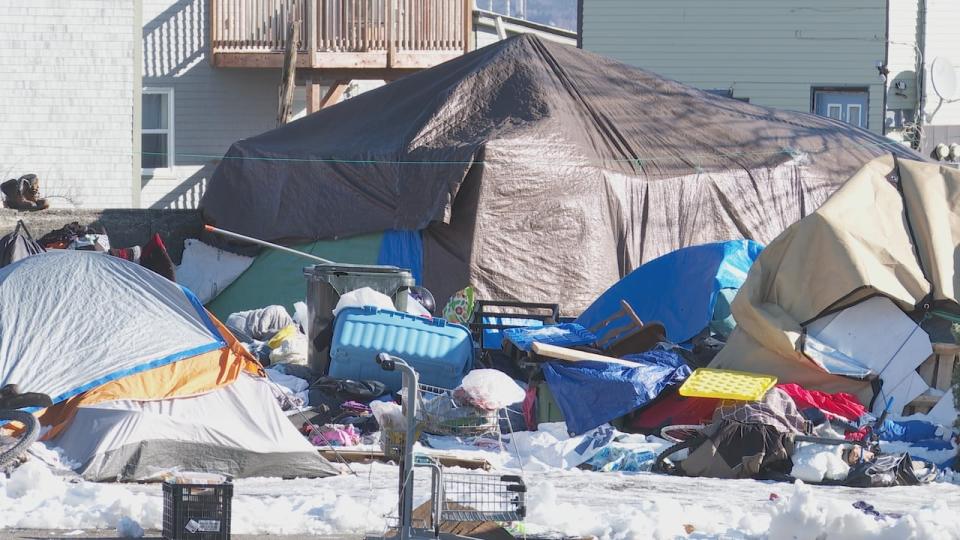
City officials hope to set up an authorized encampment site that would provide amenities like toilets and garbage pickup. (Graham Thompson/CBC)
Without electricity, people have to rely on open flames to generate heat.
"The only way to reduce and actually stop the risk of fire for the unsheltered population is access to electricity. So that's vital."
After those basic needs are met, Vautour would also like to see laundry facilities and communal areas.
"We often forget that homeless individuals are still people and it's easy to forget that.… They still want to socialize with each other. They want friends to come over. They want to have a group dinner sometime.… So those are all things that are very important."
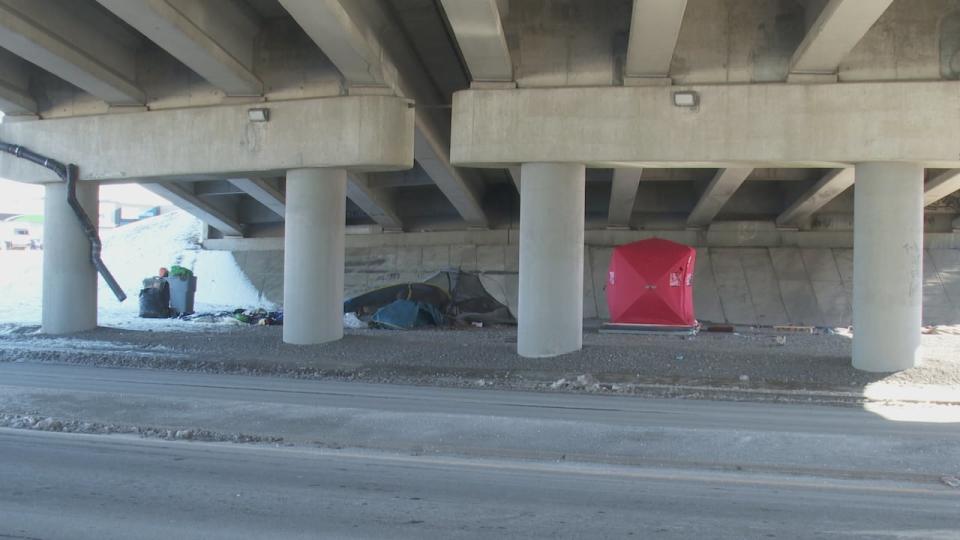
Tents under an overpass on Jan. 18 in Saint John. (Graham Thompson/CBC)
'It is not a home'
The idea is to keep people safe while the team around them helps to find them "permanent supportive housing," said Vautour.
Although it's a form of transition housing, she doesn't like using that term.
"It is not a home. It's temporary. It's an opportunity to keep people safer from a harm-reduction lens until they can access housing."
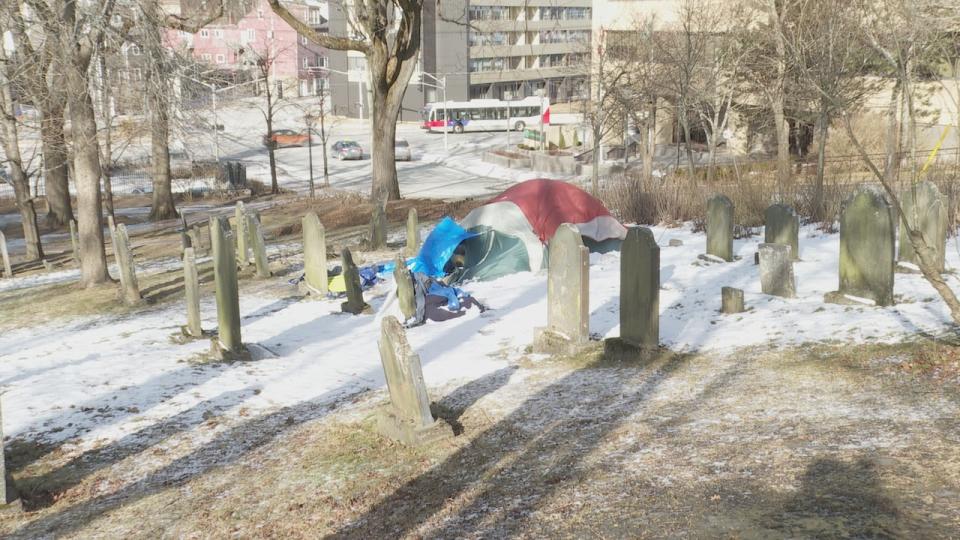
Tents are popping up all over Saint John, including here at the Loyalist Burial Ground. (Graham Thompson/CBC)
While Reardon said the site will have two round-the-clock staff members on site, exactly how to supervise the site is one of the unknowns that still have to be worked out, said Vautour.
She said the exact form of the shelters also has yet to be determined between "pallets, tiny homes, container villages."
It's also not clear who's paying for the shelters. Reardon said the city was looking into a program in Cape Breton where the structures were owned by the province.
The Department of Social Development was asked for details about what the province's role in the project would be, but those were not provided by publication time.
The exact design of the shelters has also not been decided.
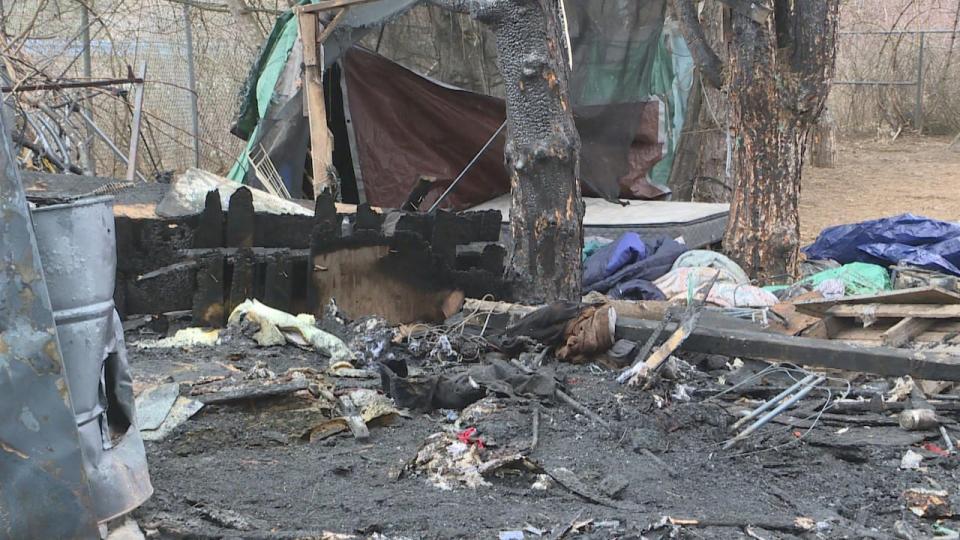
The scene after a fire that claimed one life at a homeless encampment in Saint John earlier this month. (Lars Schwarz/CBC)
Reardon said she would prefer to see a pallet village because it's "a better structure, it's safer, it's warmer, they'd be insulated."
Pallet shelters are prefabricated enclosures that can be assembled on site and come in a variety of sizes and insulation levels.
She also said there's an advantage to grouping a large number together rather than spreading a few out over several locations.
"If you put 20 to 25 together you can certainly service them far better," said Reardon.
She's hoping Saint John Energy could provide the power, and the city could supply water and sewerage and garbage pickup.
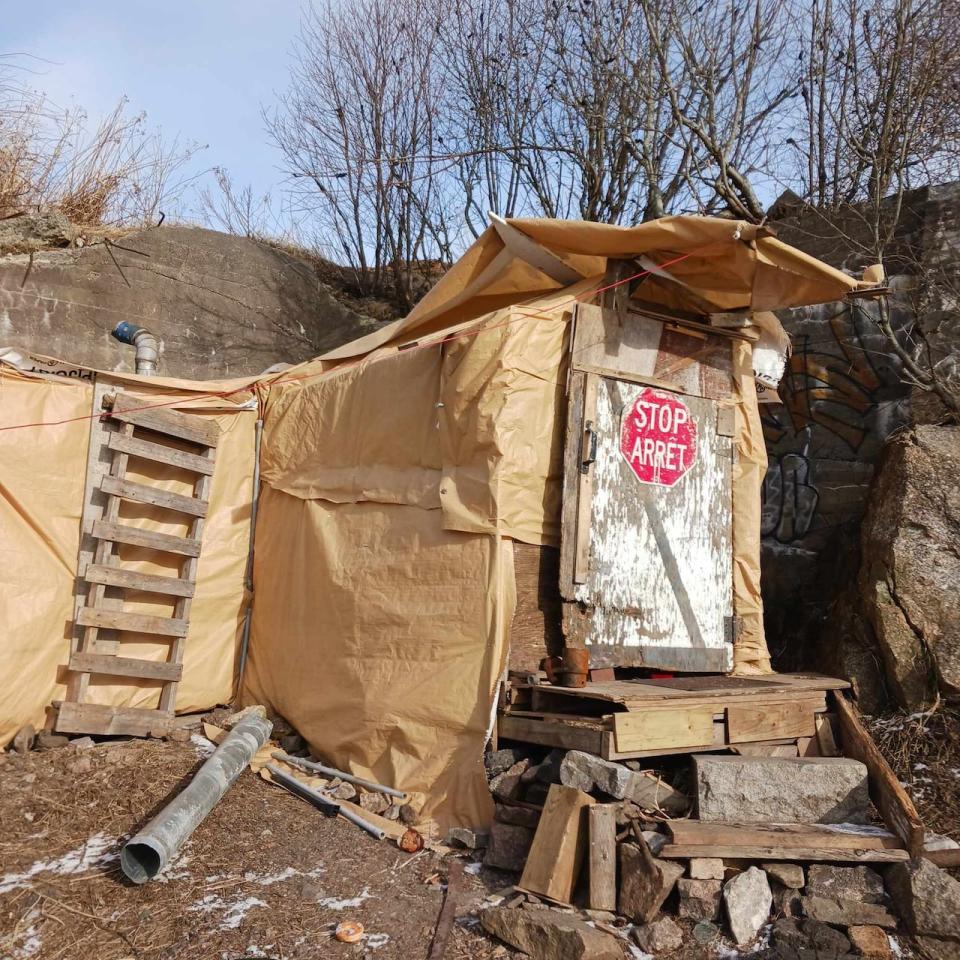
Evan McArthur was homeless for about four years and lived in this shack in the woods in Millidgeville, his mother says, before he died in a tent fire. (Heather McArthur)
Still searching for suitable site
Reardon said groups are still looking for a suitable location. She said it has to be flat, first of all.
"You would like it to have to be close to a bus stop. You want it to be close to amenities, grocery stores, pharmacies, etc."
Reardon said she understands residents' concerns about having such a facility located in their backyards, but she's hopeful there's enough compassion that residents won't oppose the project if their neighbourhood is selected.
"Right now, we have had no issues with the out-of-the-cold shelter," said Reardon. "So at the end of the day, if your shelter is well-managed, maybe you can step up to a small village."


